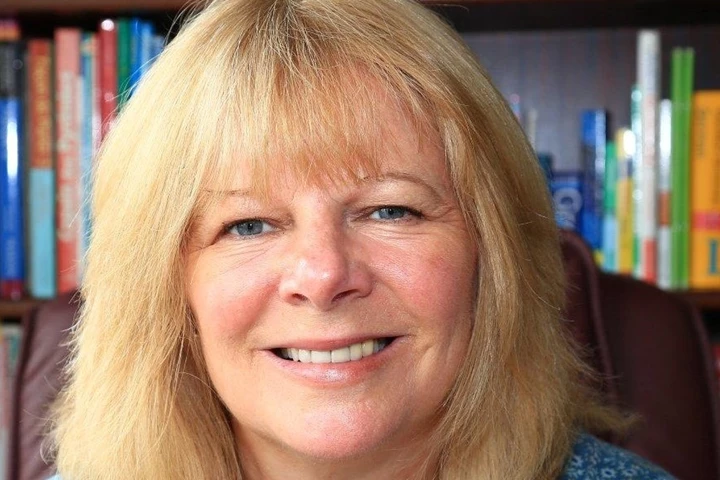A team from INTO University of Exeter has been chosen to present research on blended learning at a major conference for English language teaching professionals and academics in April.
Early in 2018, INTO Exeter invited employees to bid for funding for small-scale research projects that would benefit staff and students alike. Dr Rebecca Hooker (pictured) and teacher and coordinator and teacher Felicia Heard duly applied for and won funding for a project that explored the views and best practice of identified ‘blending learning champions’ and the reactions of students to this across various programmes at INTO Exeter.
The pair collected data in April/May 2018, and their findings will be presented at a workshop at the International Association of Teachers of English as a Foreign Language (IATEFL) Conference in Liverpool, which last year attracted 3,000 attendees from more than 100 countries.
“The Matching student and teacher expectations in blended learning workshop we are planning to deliver at the conference will include information on how to use blended learning effectively, and participants will be encouraged to try out learning technologies on their mobile devices,” said Rebecca.
Over the past year or so, Felicia and Rebecca have also presented and published work on a new module, Engagement in Communicative and Language Skills (ECLS) that forms part of the Academic English programme at Duryard House, INTO University of Exeter.
This new module has been developed with a focus on community and cultural engagement. “We are hoping that it will help students to acquire ‘softer’ skills, such as reflective and communications skills, build their confidence and help them to ‘fit in’. It should also allow students to develop the general skills and attributes needed for future academic challenges and, ultimately, the workplace,” said Felicia.
In late June 2018, Felicia and Rebecca presented a paper on this subject at the InForm Conference at the University of Birmingham. This conference and its associated journal are concerned with teaching and learning related practice for members of the academic community associated with International Foundation Programmes (IFPs).
The two researchers subsequently had a paper published in the Inform journal in December entitled Developing ‘soft’ transferable skills to achieve ‘hard’ targets through cultural and community engagement: a case study. The paper looks at the contribution made by so-called ‘soft skills’ and non-assessed programmes when preparing students for university, from the perspectives of both students and pathway programme teachers.
